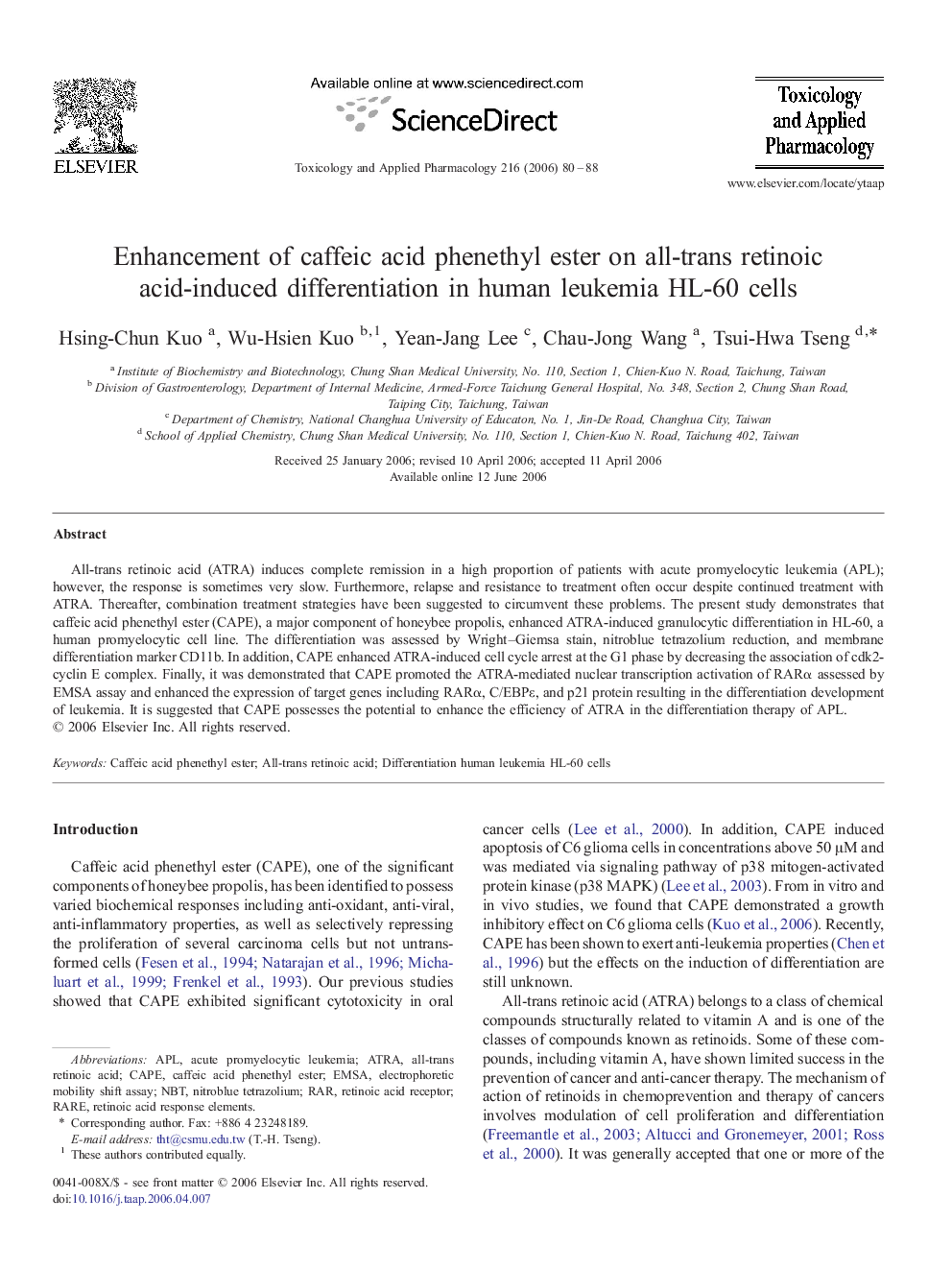| Article ID | Journal | Published Year | Pages | File Type |
|---|---|---|---|---|
| 2572010 | Toxicology and Applied Pharmacology | 2006 | 9 Pages |
All-trans retinoic acid (ATRA) induces complete remission in a high proportion of patients with acute promyelocytic leukemia (APL); however, the response is sometimes very slow. Furthermore, relapse and resistance to treatment often occur despite continued treatment with ATRA. Thereafter, combination treatment strategies have been suggested to circumvent these problems. The present study demonstrates that caffeic acid phenethyl ester (CAPE), a major component of honeybee propolis, enhanced ATRA-induced granulocytic differentiation in HL-60, a human promyelocytic cell line. The differentiation was assessed by Wright–Giemsa stain, nitroblue tetrazolium reduction, and membrane differentiation marker CD11b. In addition, CAPE enhanced ATRA-induced cell cycle arrest at the G1 phase by decreasing the association of cdk2-cyclin E complex. Finally, it was demonstrated that CAPE promoted the ATRA-mediated nuclear transcription activation of RARα assessed by EMSA assay and enhanced the expression of target genes including RARα, C/EBPε, and p21 protein resulting in the differentiation development of leukemia. It is suggested that CAPE possesses the potential to enhance the efficiency of ATRA in the differentiation therapy of APL.
